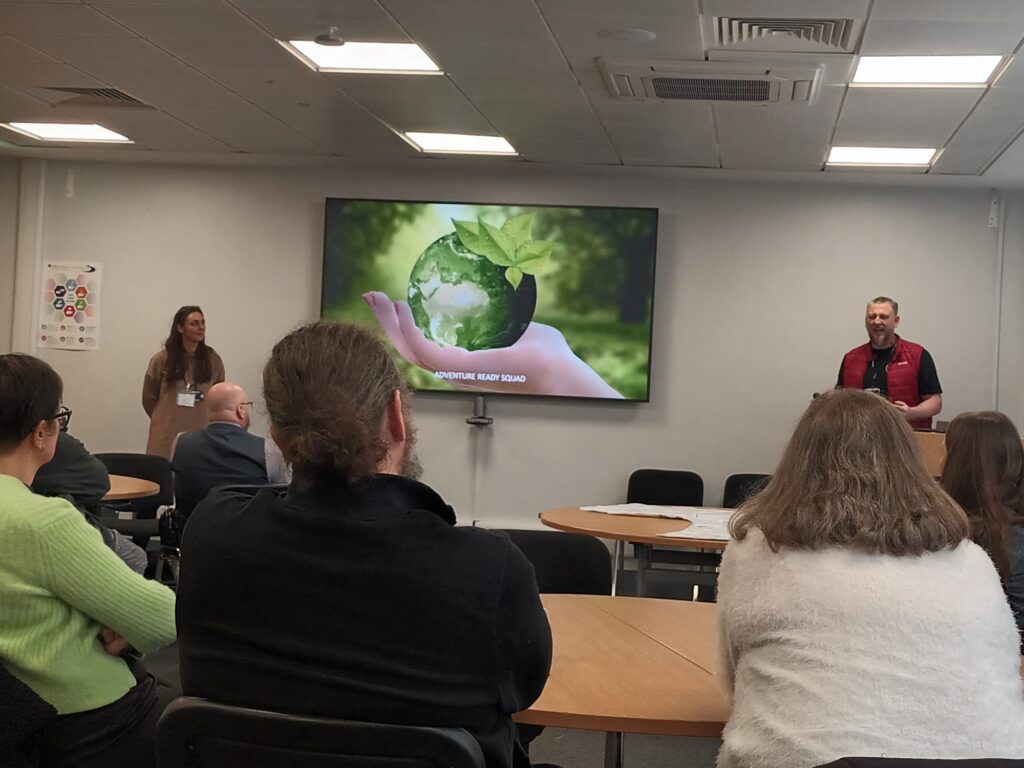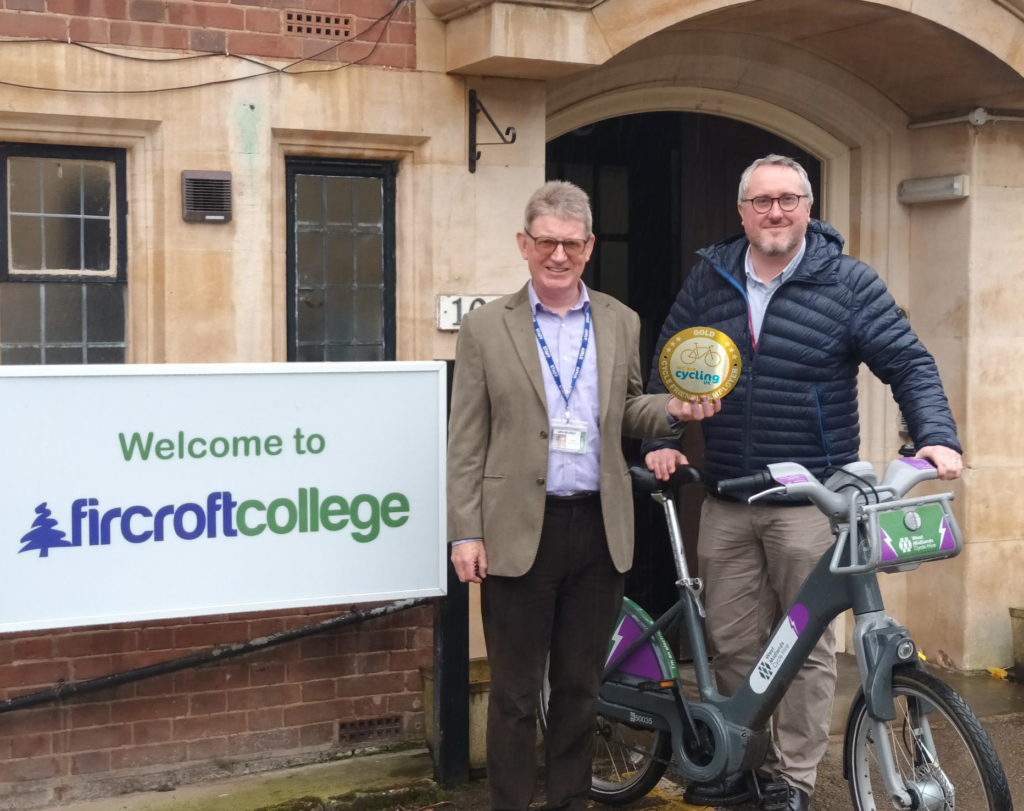Green skills at the heart of strategy
Putting sustainability and green skills at the heart of college strategy

With climate change impacting every aspect of life, further education colleges are increasingly prioritising sustainability and green skills.
FE colleges have a pivotal role in the region in providing the technical green skills training necessary for employment in new green jobs, while also developing broader green skills across all occupations. Colleges are key to fostering environmental stewardship among young people, empowering community groups to engage in green projects, and equipping business leaders with sustainability leadership skills.
To do this, FE colleges must put sustainability and green skills at the heart of college strategy.
Leading colleges in sustainability and green skills are taking the following essential steps:
Public commitment
They openly commit to addressing the climate emergency and to accelerating the development of green skills in the West Midlands and Warwickshire.
Strategic integration
They embed sustainability and green skills in their mission and vision statements, identifying them as strategic priorities in their plans. These colleges create ambitious green skills business and delivery plans.
Target setting and monitoring
They set clear targets and regularly monitor their progress.
Collaborative efforts
They map out regional stakeholders in green skills and establish collaborative working relationships. They work collaboratively with schools, other colleges, universities and educational providers on sustainability and green skills.
College wide engagement
They ensure that green skills are a focal point for the entire college community. Governors are actively involved in green skills initiatives, which are integrated into all curriculum and business plans.
Staff involvement
They include green skills in all job descriptions, offer effective staff development programmes, and allocate resources for green skills leadership.
Professional development
They develop and deliver a collaborative green skills professional development, building on the successful Green Changemakers programme.

Case Studies

Green Changemakers, a growing body of further education staff in the West Midlands and Warwickshire, are coming together as an influential community of practitioners and rapidly redefining the part colleges play in Green Skills and sustainability. These Green Changemakers are active within many parts of their organisations bringing about transformational change from within.
The Green Changemaker course was designed and delivered within the regional Local Skills Improvement Fund Project funded by the Department for Education.
Only four months into the initiative, the 40 Changemakers from 17 different organisations were already active in effecting deep changes in their respective colleges, not just across the curriculum and pedagogy, but in strategy, the college environment and the student experience. With further Green Changemaker courses in the offing, and an interactive virtual tutor hub in development to give educators across the region the connectivity, resources and support to keep updated, the future of skills in the West Midlands and Warwickshire certainly looks Green.
It was launched to help tutors find their way in a world where most people want to do something but are petrified by #ecoanxiety. Green Changemaking is a game-changer, shifting those good intentions to sustainable change and aligning practice to strategy within their colleges
Dr Lou Mycroft, course leader

Fircroft College is deeply committed to promoting social, climate, and environmental justice, with a focused strategic goal of cultivating global sustainable citizens. This commitment is evident in the college’s comprehensive climate action plan, which impacts all aspects of its operations, including curriculum development, campus management, community partnerships, and staff engagement. Embracing the concept of ‘Climate Joy,’ staff are encouraged to align their personal passions with the college’s sustainability objectives, leading to the creation of individual sustainability objectives tailored to the interests of each member of staff. As a result, staff fully understand and embrace the college’s sustainability mission. For example, the college’s Senior Vice Principal discovered his own ‘Climate Joy’ in cycling and initiated a successful cycling project, resulting in the creation of new bike facilities at the college and national recognition for promoting cycling.
Funding from Sports England means that qualified staff will be able to lead regular rides from the college and share the joy with people who haven’t cycled for a long time and don’t have a bike.
Michael Conway-Jones, College’s Vice Principal
How do we get there?
Green Skills Strategy
Make a public commitment to green skills.
Colleges should ...
Make a public commitment, either individually or collectively, to work at pace in supporting the development of green skills in Warwickshire and the West Midlands.
Make green skills a strategic priority.
Colleges should ...
Take a strategic approach to the development of green skills by recognising green skills in their mission and vision statements, and/or by specifying green skills as a strategic priority in their strategic plans.
Engage governors in green skills.
Colleges should ...
Ensure governors are fully engaged in the colleges’ approach to the development and delivery of green skills.
Implement an ambitious green skills operational.
Colleges should ...
Ensure the college has a wide and ambitious green skills business/delivery plan and that green skills are clearly incorporated into all curriculum area business/delivery plans.
Weave green skills into all job roles.
Colleges should ...
Ensure that green skills are appropriately referenced in all job descriptions, that staff can participate in effective staff development, and that the leadership of green skills is suitably resourced.
Collaborate on a green skills professional development programme.
Colleges should ...
Develop and deliver a collaborative green skills professional development programme across Warwickshire and the West Midlands building on the successful Green Changemakers programme.
Collaborate regionally around the EAUC Climate Action Roadmap.
Colleges should ...
Take a common approach, regionally, to the application of the EAUC Climate Action Roadmap and participate in peer assessments of institutional progress against the roadmap.
Map key regional players in green skills.
Colleges should ...
Map out the key regional players in green skills – ‘who is doing what’ – and agree collaborative ways of working.
Celebrate green skills achievements widely.
Colleges should ...
Seek out every opportunity to celebrate the green skills achievements of the young people, adults, apprentices, communities, and employers they support.
Dig Deeper
Across this site
- Roadmap to the future
- Using the Road Map
- The Green Skills Challenge
- Technical green skills for adults and young people
- Green custodianship skills for young people
- Community empowerment skills for adults
- Sustainability leadership skills for employers leadership skills for small and medium size business leaders

